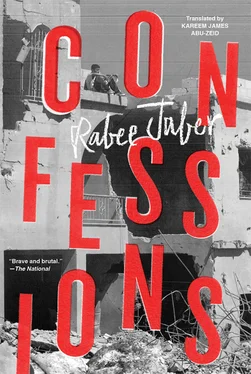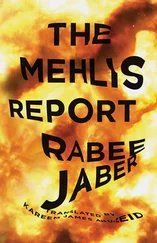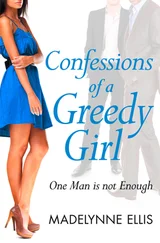I called out to the people I knew, I called out to the living and the dead as I lay on my back, speechless, breathless, in that room on the fifth floor. I called out and no one came. Where had they gone? I pressed a hand to my head, and the pain got worse until I almost screamed. I pulled my hand away. I didn’t know what was happening to me. It was as if my brain were splitting in two: Was there a tumor in my head? Was I dying of cancer, just like my father? (I said “my father.” I was in hell and without noticing it I said “my father.” I said the words and felt them, and I saw the man looking at me with his one remaining eye as I came home one evening, my face dark. He was sitting in the entryway, across from the door, and he raised his hand, and I raised mine. I didn’t look at him and I didn’t stop and I didn’t talk to him: he raised his hand weakly, and I raised mine.)
I wanted to scream. The pain was unbearable. I know as well as you that no one can communicate their pain. Whoever tries to speak their pain keeps repeating the same words, over and over again, boring the listener. They wear themselves out in the attempt to communicate what’s happened to them, what’s afflicted them, and it bores the listener. I know. Pain’s like that. It’s indescribable.
Do you know how I fell asleep again? Do you know how it left me, that headache the likes of which I’d never experienced before? While I was moaning, I began saying, “Oh Lord, make this pain go away, O Lord, make it go…” Was I praying? Was I delirious? How high was my fever just then? It was a hot night. (Was it hot? My roommate had covered himself with a blanket and I didn’t see him take off the blanket for the whole night.) Was my fever high? I don’t think it was that high. So I wasn’t delirious. What was it, then? I think I was praying as I called for the pain to leave my head. I think I was praying.
I’ve told you the details of that night because a few days later, while I was washing my hair under a cold shower, I felt something warm coming out of my ear. I touched my ear as I turned off the water, then got out of the shower and looked in the mirror: I was bleeding.
It was just a few drops. I dried myself off and got dressed and went to the clinic. My hair was still damp when the doctor took a look at me. (This was a different doctor, an older one. He was tall, and he hunched over when he walked: I still see him walking through the campus sometimes, I like to watch him from a distance.) He used some cotton and those small plastic sticks. He inserted the cotton into my right ear, then into my left. He asked if I was taking any medication, and I told him the name. He nodded his head and said something. Was he speaking in Latin? He wrote me a prescription pad for a different medication, but said that getting rest was more important. “Go for a walk on the corniche every day.” He lifted his eyes from the prescription before stamping it and said, “Walking’s the best medicine for headaches. Drink some water too, that’ll really help. Look at this beautiful campus. You’re in the dorms, right? Go for walks at night under the trees instead of sitting in front of the TV. Don’t think too much, and you’ll get better.”
Was I thinking too much? I wasn’t thinking. I didn’t have the capacity. All I wanted was to remember. That’s what I’d been trying to do the whole time. Didn’t I tell you that I’d split in two, didn’t I tell you I’d become two creatures in a single body? There were two of me studying for those exams (one of them was studying while the other tried to remember a life he’d lost when they opened fire on the white car). There were two of me poring over the newspapers in the fetid microfilm room (one was looking at the titles, keeping an eye out for keywords, and the other was trying to remember an old name that had been lost among thousands).
Years later, during a company business trip to Dubai, I met up with a friend from my days on campus, someone I used to see sitting in front of Antoine’s room, on the wraparound balcony: he was one of Antoine’s neighbors and was always sitting at the same spot, drinking tea, or Nescafé with milk, and reading Superman comics. He was always reading those comics — it was as if he never went to class. If he disappeared from the chair it was because he’d gone to the movies or to the cafeteria or he was playing checkers in the West Hall and watching the girls. We sat in the lobby of the Jumeirah Hotel in Dubai, and he told me he was a civil engineer (I never saw him on the engineering part of campus while I was there, nor do I remember ever seeing him on the steps of the engineering school). I learned he’d moved to Colorado, where his siblings lived, after two years at AUB (that’s true: after my sophomore year, I no longer saw him in front of Antoine’s room). All of his siblings worked in America and had families there. But he didn’t like the country. He started laughing as he put his hand on my shoulder in the hotel lobby. “Let’s have dinner,” he said, “I want to tell you something.”
Over dinner — we sat on the top floor, he ordered prawns with rice and I ordered roasted lamb — he told me this was the best job in the world. “If you want to know what mankind’s capable of, you’ve got to be in our line of work,” (he said it like that, even though I’m not a civil engineer). He told me he’d been in Hong Kong two months earlier, and asked me if I’d ever visited there. He said the subway system had multiple levels, and whenever it got too crowded they’d dig down another level into the earth. And it was the same with the bridges. Whenever the traffic got too bad, they’d go up another level by building a new bridge on top of the old one. And that wasn’t all: the freeways that surround the island and allow you to circle Hong Kong while you’re in your car, drinking tea and listening to jazz, all those roads are built on the sea, on water, they’re built using land that’s been brought in. Just like here, he said.
He asked about the university and about the dean (I was teaching the first-year mechanical engineering course, ME 201, at the time). I told him it was the same, it never changed. He laughed and said his father says that too. His father graduated from AUB in 1961, also in engineering: “He still goes to campus and sits there with his friends — can you believe it?”
He asked about Antoine. I gave him his e-mail address.
He asked about Rhonda (a woman Antoine once dated). He laughed when he saw the indifferent expression on my face. And I thought of Ilya while he was laughing. We’d finished our food before he finally told me the story (he’d been waiting for the noise to die down and the crowd to get smaller — people he knew kept coming by to say hello): His brother, who worked in Austin, had come back to Beirut a few years earlier to help with the expansion of the airport. The company he works for over there — in Austin — was a partner in the project. His job was to supervise the transportation of the support beams (the piles) into the sea. Those beams were important for the new runway. He wasn’t the only supervisor. He worked in conjunction with the Lebanese engineering firm Dar al-Handasah. He wasn’t exactly the “supervisor.” You could say he was a consultant, or one of the consultants. First he got the steel beams ready at the Dar al-Handasah headquarters by the airport, then he transported them in trucks to the Ouzai coast. It was summer, and the heat was intense. The bulldozer was clearing some space on the beach when its blade dug up some corpses. He saw the corpses, but at first he didn’t know what he was looking at. Then the truth hit him. Just a few days earlier, he’d been telling his wife on the phone — his wife worked in Austin, she had a pediatric clinic there — he’d been telling her that Lebanon was changing, that everything he loved about the place was still there, but the stuff he hated was beginning to change. His wife didn’t like the subject, and she’d gotten annoyed. She wasn’t fond of Lebanon, and didn’t believe she’d fully left it behind. “We should come on one of our short vacations and you’ll see how much it’s changed,” he said. “Let’s just come for one vacation, just like that, without any plans, so you can see for yourself.” That was before he saw the bulldozer blade slice into the corpses and lift them into the air, before he saw the sand and bright pieces of clothing fall from the corpses. The driver turned off the engine (an oily cloud filled the air) and got down from the bulldozer, muttering “In the name of God” and “God protect us.” He stood there, looking at the body parts, then turned around and looked at the engineer who’d come from America. “What did he say to him? I don’t remember. But this is what I do know: My brother’s in America now. And I don’t think he’s coming back to Lebanon ever again.”
Читать дальше












